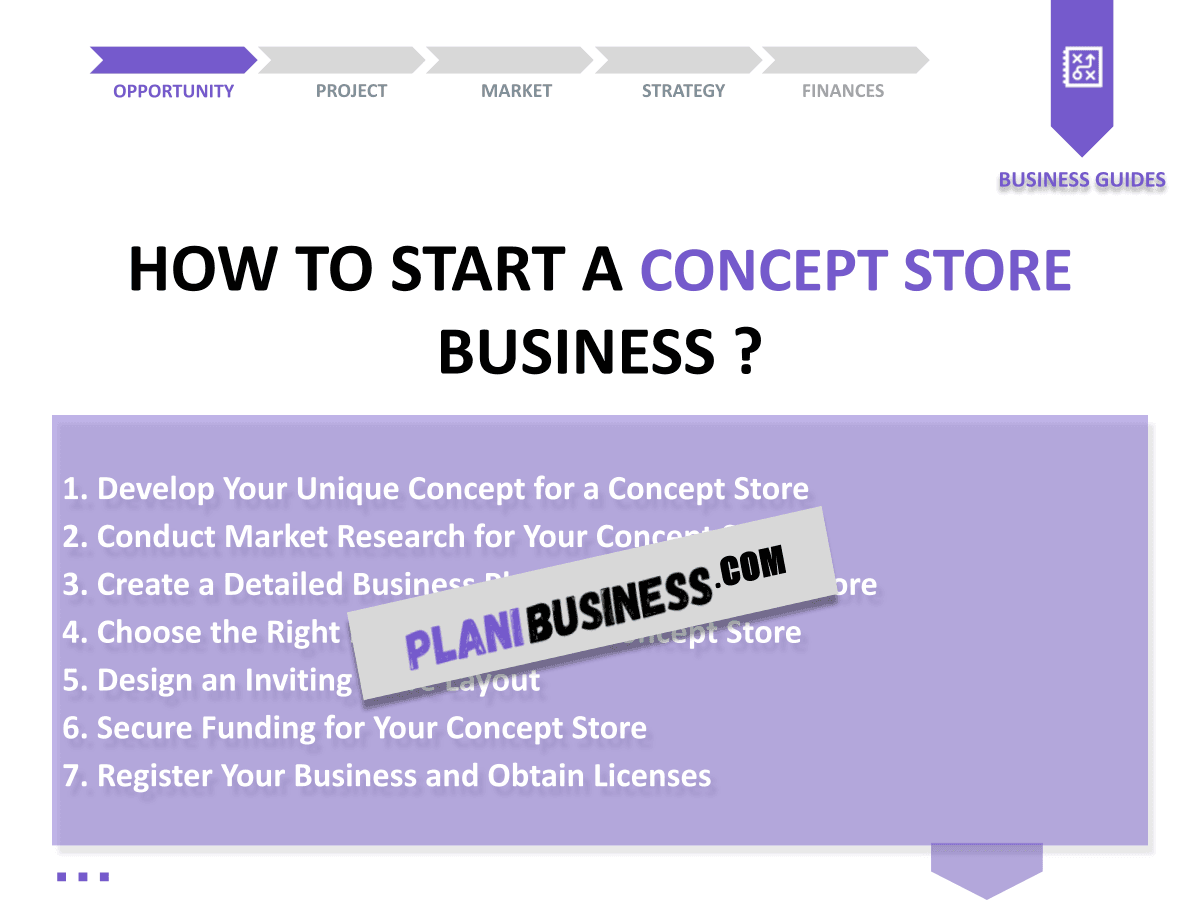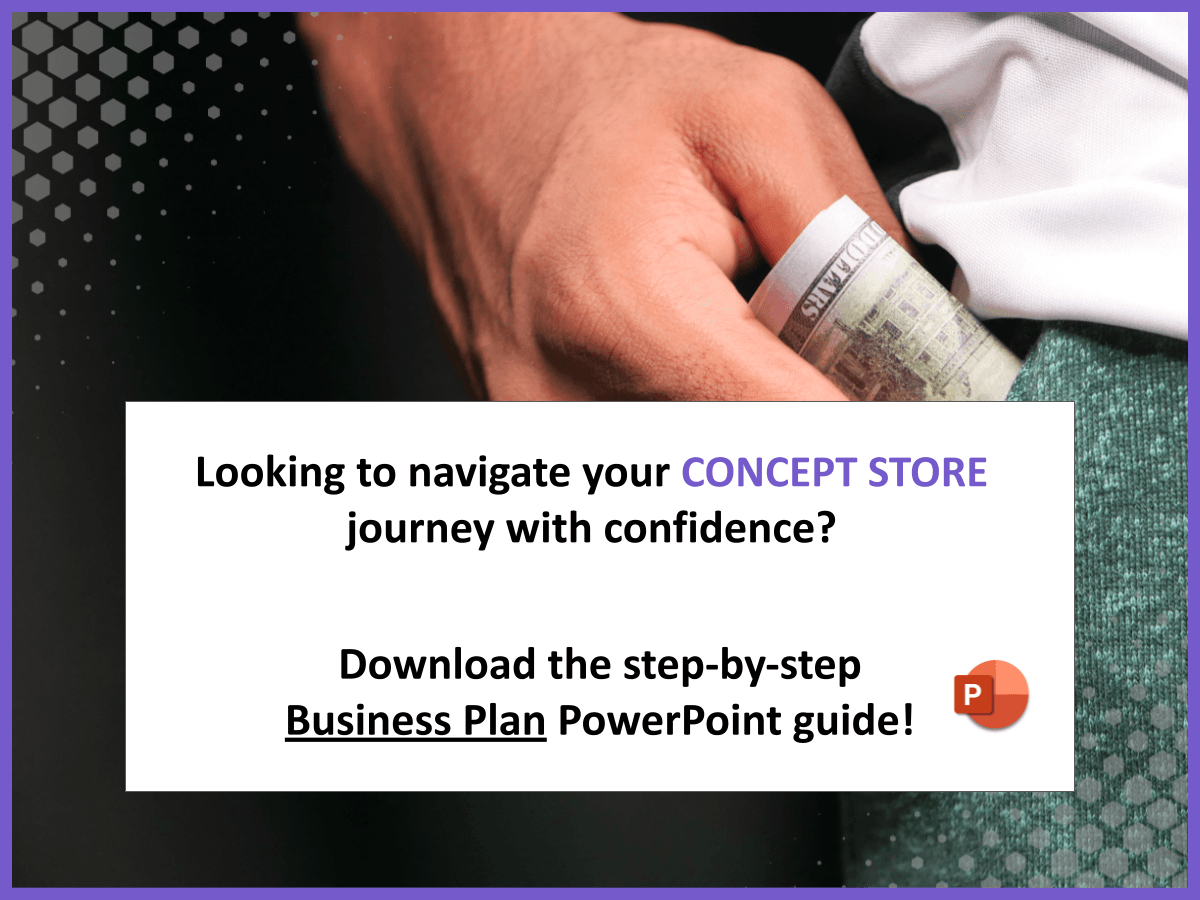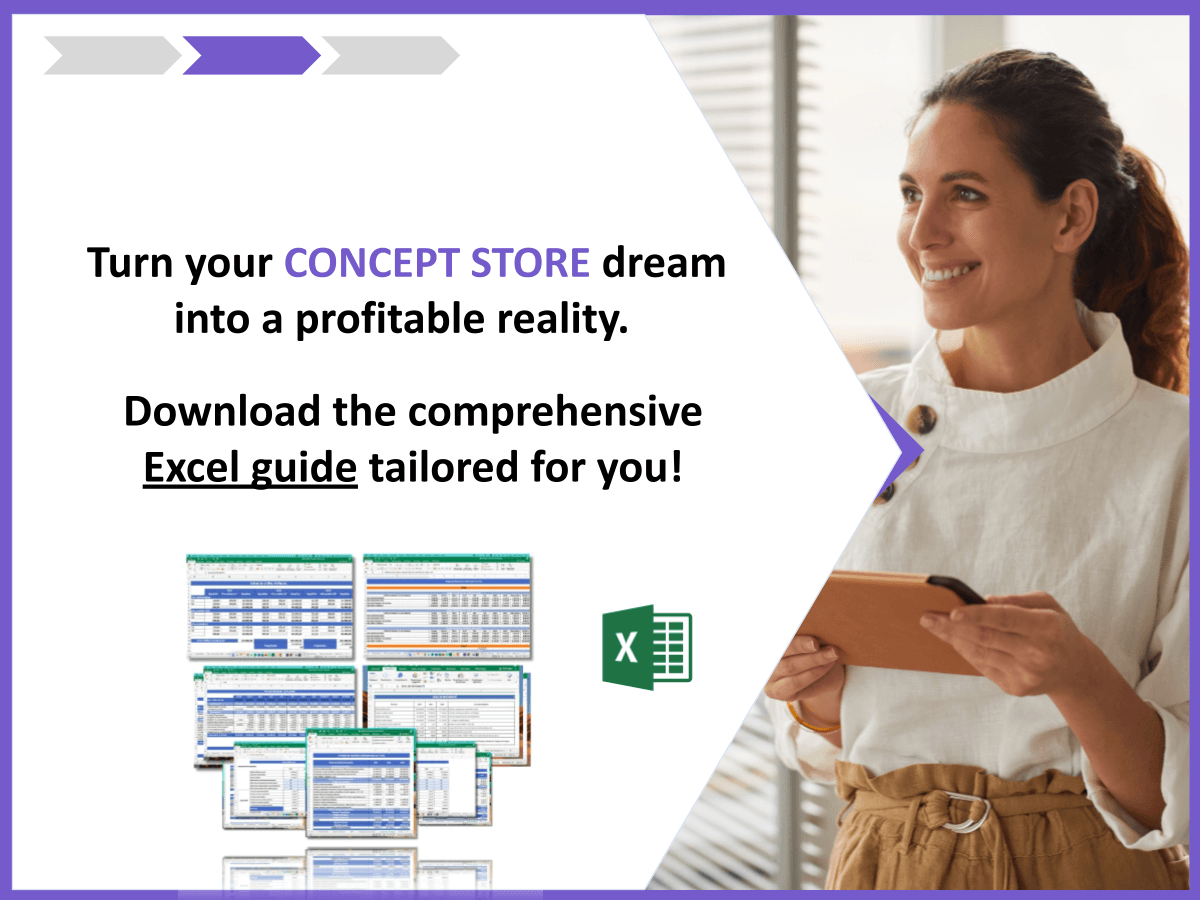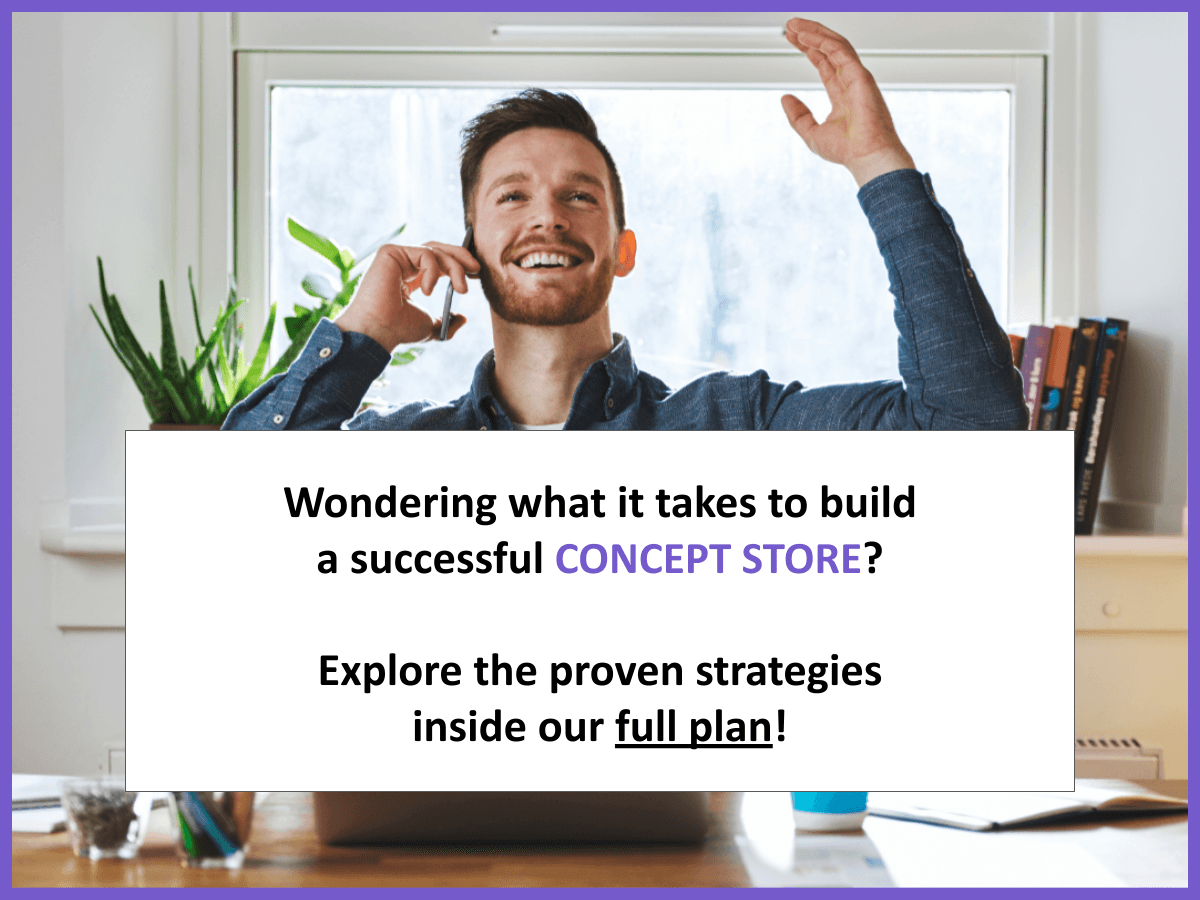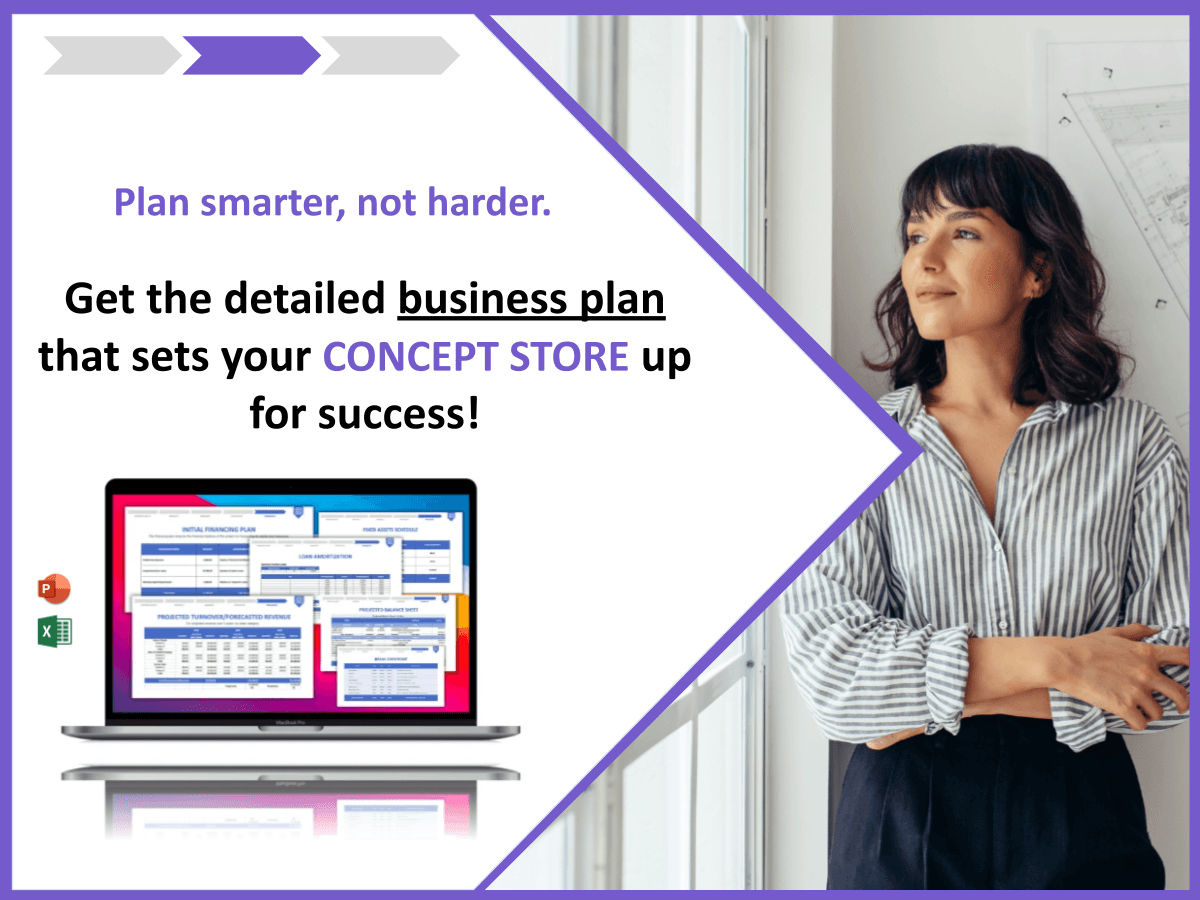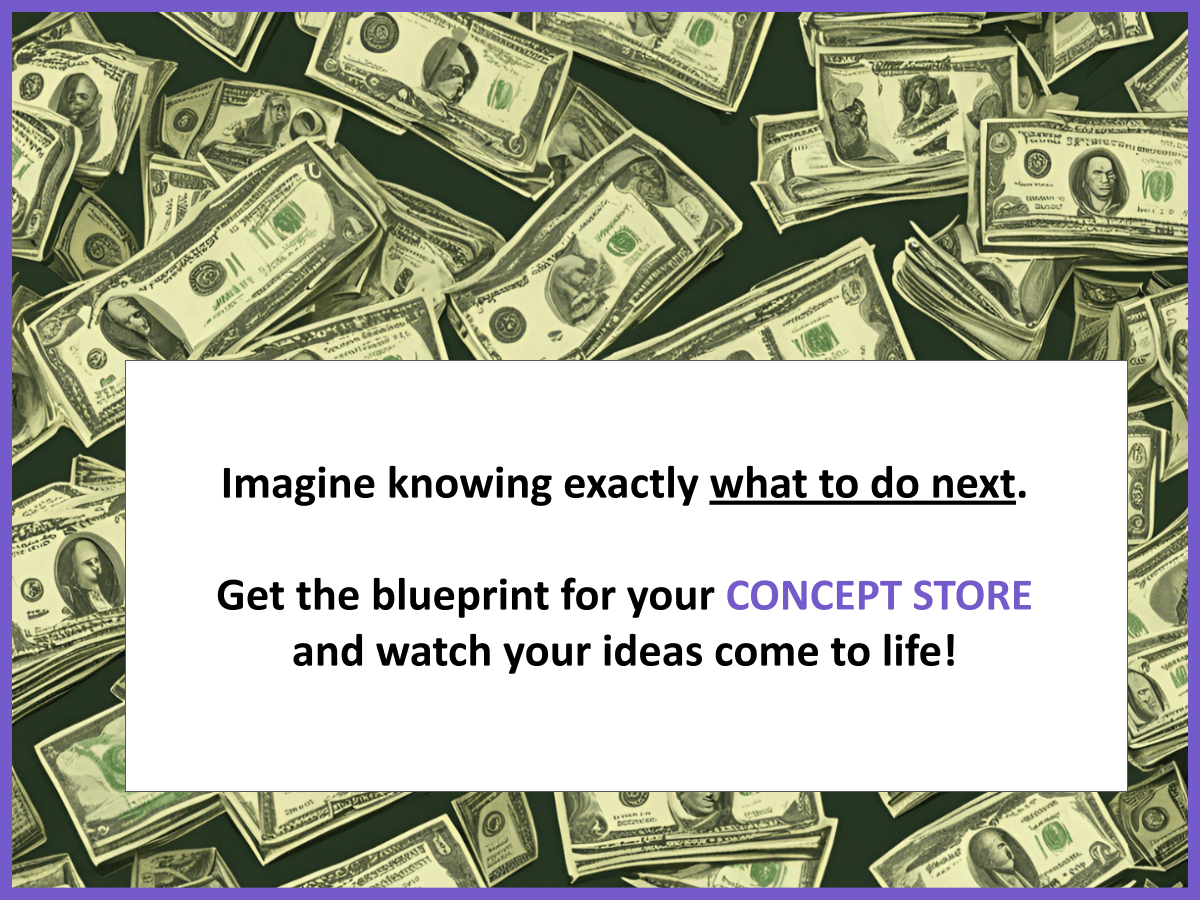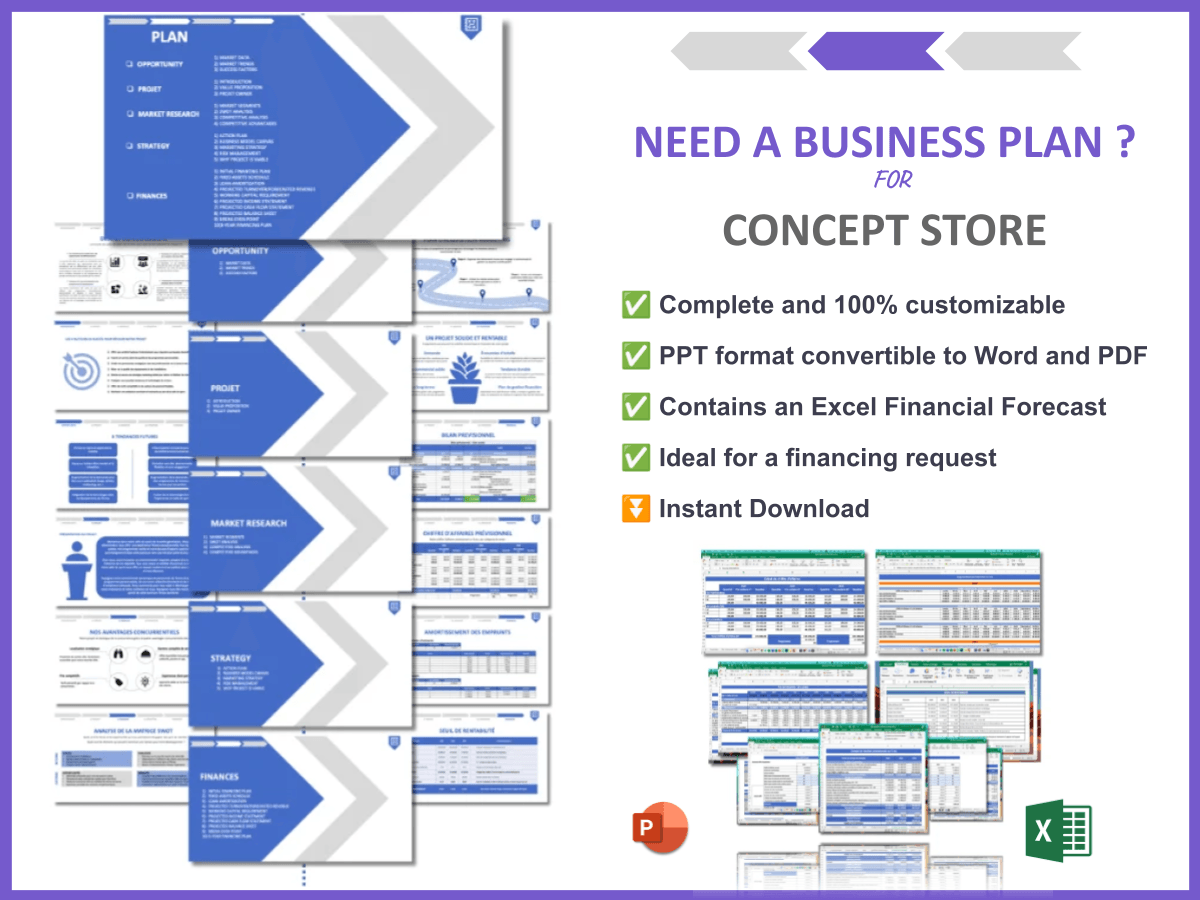Are you thinking about starting a concept store? You’re not alone! In recent years, the retail world has seen a massive shift towards unique shopping experiences, and concept stores are at the forefront. A concept store combines various products and experiences in a way that tells a story or conveys a specific theme. These stores often focus on curating items that resonate with a specific lifestyle or community.
In this article, we will explore:
- What a concept store is and why it’s a great business idea.
- How to develop a unique concept that stands out.
- Conducting market research to ensure your store’s success.
- Creating a detailed business plan that covers all aspects of your venture.
- Choosing the right location for your store.
- Effective marketing strategies to attract customers.
1. What is a Concept Store and Why Start One?
A concept store is more than just a retail space; it’s an experience. These stores blend various products—from fashion and home goods to art and food—into a cohesive theme that reflects a particular lifestyle or idea. The beauty of a concept store is in its flexibility; you can curate products that align with your passions, values, and the interests of your community.
One of the main reasons why starting a concept store can be an excellent idea is the growing consumer demand for unique shopping experiences. Shoppers today are looking for more than just products; they want a narrative and a connection. Here are some compelling reasons to consider:
- Market Differentiation: A concept store allows you to stand out in a crowded retail landscape.
- Community Engagement: You can foster a community around your store, making it a hub for like-minded individuals.
- Creative Expression: It gives you the freedom to express your creativity through product selection and store design.
In short, if you’re passionate about a particular lifestyle or theme and want to share that with others, starting a concept store could be your calling.
2. Develop Your Unique Concept for a Concept Store
The first step in launching your concept store is to develop a unique concept that reflects your vision. This involves brainstorming what your store will offer and how it will resonate with customers. Here are some key considerations:
- Identify Your Passion: Think about what you love. Is it sustainable fashion, artisanal foods, or perhaps vintage decor? Your passion will drive your store’s concept.
- Understand Your Audience: Who are you trying to reach? Knowing your target demographic is crucial. Are they young professionals, families, or perhaps eco-conscious consumers?
- Research Trends: Stay updated on retail trends and consumer preferences. What are people excited about? This will help you curate products that are in demand.
For example, if you’re passionate about eco-friendly products, your concept store could focus on sustainable living. You could feature items like reusable bags, organic skincare, and zero-waste home goods. Your store could also host workshops on sustainability, creating a community around this important topic.
Remember, the more specific you are about your concept, the easier it will be to attract your target audience. So take your time, brainstorm, and refine your idea until it feels just right.
3. Conduct Market Research for Your Concept Store
Before diving into your concept store venture, it’s crucial to understand your market. Conducting thorough market research helps you identify opportunities and avoid potential pitfalls. Here’s how to effectively approach your research:
- Identify Your Target Demographic: Who are the people most likely to shop at your concept store? Consider factors like age, interests, and spending habits.
- Analyze Your Competitors: Look at other stores in your area or online that offer similar products. What are they doing well? What gaps can you fill?
- Gather Data on Market Trends: Use resources like industry reports, social media trends, and customer surveys to understand what’s currently popular.
Here’s a simple table to help you summarize your findings:
| Research Area | Findings |
|---|---|
| Target Demographic | Young adults aged 25-35 interested in sustainable products. |
| Competitor Analysis | Local competitors focus on mainstream brands; opportunity for niche eco-friendly products. |
| Market Trends | Increasing demand for zero-waste and sustainable living products. |
By taking the time to conduct proper market research, you’ll be better equipped to tailor your concept store to meet the needs and desires of your customers. This foundational step can significantly increase your chances of success.
4. Create a Detailed Business Plan for Your Concept Store
Having a solid business plan is key to your success in starting a concept store. It serves as a roadmap for your business, outlining your goals, strategies, and financial projections. Here’s what to include in your business plan:
- Executive Summary: A brief overview of your concept store, its mission, and what sets it apart.
- Market Analysis: Insights from your research, including target demographic and competitor analysis.
- Marketing Strategy: How you plan to attract and retain customers.
- Financial Projections: Estimated startup costs, projected revenue, and break-even analysis.
To make things easier, I recommend checking out this business plan template for concept store. It’s super detailed and can save you a ton of time! Having a well-structured plan will not only help you stay organized but will also be essential if you’re seeking funding from investors or banks.
In conclusion, a comprehensive business plan will set the foundation for your concept store and guide you through the initial stages of your entrepreneurial journey. Take your time with this step; it’s worth it!
5. Choose the Right Location for Your Concept Store
Location can make or break your concept store. You want a spot that attracts your target audience and aligns with your brand. Here are some key factors to consider when choosing the right location:
- Foot Traffic: Look for areas with high pedestrian traffic. Locations near popular cafes, parks, or shopping districts can draw in more customers.
- Accessibility: Ensure your store is easy to access, whether by car, public transport, or on foot. Consider parking availability and public transport options.
- Proximity to Competitors: While you want to be aware of your competitors, being near similar businesses can also create a shopping destination. Just make sure your store offers something unique.
Here’s a simple table to help you evaluate potential locations:
| Location | Foot Traffic Rating | Accessibility Rating | Competitor Proximity |
|---|---|---|---|
| Main Street | High | Excellent | 1 nearby |
| Shopping Mall | Medium | Good | 3 nearby |
| Suburban Area | Low | Fair | None |
Taking the time to find the right location for your concept store can significantly impact your visibility and sales. Don’t rush this decision; visit potential sites at different times to gauge foot traffic and atmosphere.
6. Design an Inviting Store Layout
Your store layout is essential in creating an engaging shopping experience. An inviting and well-organized space will encourage customers to explore and spend more time in your concept store. Here are some tips for designing your layout:
- Flow: Think about how customers will move through your space. Create a logical path that encourages exploration.
- Display: Use attractive displays to showcase your products. Consider using tables, shelves, and props that align with your store’s theme.
- Atmosphere: Pay attention to lighting, colors, and music. All of these elements contribute to the overall vibe of your store.
For example, if your concept store focuses on wellness products, you might use calming colors, natural materials, and soft lighting to create a serene atmosphere. Consider setting up a cozy corner where customers can relax and try products.
Remember, the goal is to create an environment that reflects your brand while making customers feel comfortable and welcome. The better the experience, the more likely they are to return!
7. Secure Funding for Your Concept Store
Starting a concept store often requires significant funding. Understanding your financial needs is crucial before you begin. Here are some steps to help you secure the necessary funds:
- Estimate Startup Costs: Calculate how much money you’ll need to cover expenses such as rent, inventory, design, and marketing. Be thorough; it’s better to overestimate than underestimate.
- Explore Funding Options: Look into various sources of funding. Some options include:
- Personal Savings: This is often the easiest way to fund your startup.
- Bank Loans: Traditional loans can provide a lump sum, but ensure you have a solid business plan to present.
- Investors: Consider seeking out angel investors or venture capitalists who are interested in supporting retail startups.
- Create a Financial Plan: This plan should outline your funding sources, budget, and projected cash flow. It will be essential for convincing lenders or investors.
Here’s a simple table to help you outline your estimated startup costs:
| Expense Category | Estimated Cost |
|---|---|
| Rent | $2,000/month |
| Inventory | $15,000 |
| Store Design | $10,000 |
| Marketing | $5,000 |
Having a clear understanding of your financial needs and options will help you confidently approach potential investors or lenders. Don’t shy away from seeking advice from financial experts; it can make a big difference!
8. Register Your Business and Obtain Licenses
Once you have your funding in place, it’s time to make things official by registering your concept store and obtaining the necessary licenses. This step is essential to operate legally and protect your business. Here’s what you need to do:
- Choose a Business Structure: Decide whether you want to operate as a sole proprietorship, LLC, corporation, or another structure. Each has its pros and cons.
- Register Your Business Name: Make sure your store name is unique and register it with the appropriate authorities.
- Apply for an EIN: An Employer Identification Number (EIN) is necessary for tax purposes and is required if you plan to hire employees.
- Get Local Business Licenses: Depending on your location, you may need specific licenses to operate your concept store. Check with your local government for requirements.
For example, if you’re selling food products, you might need health permits. It’s better to be thorough now than face penalties later. Each state or city may have different requirements, so do your research!
By taking these steps to register your business and obtain the necessary licenses, you’re laying a solid foundation for your concept store and ensuring that you can operate smoothly from day one.
9. Build Your Brand Identity for Your Concept Store
Your brand identity is what sets you apart in the retail landscape and is crucial for attracting customers to your concept store. A strong brand tells a story and resonates with your target audience. Here are some essential elements to consider:
- Your Store Name and Logo: Choose a name that reflects your concept and is easy to remember. Your logo should visually represent your brand’s values and aesthetic.
- Your Brand Story: Share the inspiration behind your concept store. Customers love to know the story behind the brands they support. This connection can foster loyalty.
- Your Mission and Values: Define what your store stands for. Are you committed to sustainability, community support, or promoting local artists? Make these values clear in your branding.
To visualize your brand identity, consider creating a mood board that includes:
| Element | Description |
|---|---|
| Color Palette | Choose colors that reflect your brand’s personality (e.g., calm blues for a wellness store). |
| Typography | Select fonts that align with your brand image (e.g., modern sans-serif for a contemporary store). |
| Imagery | Use visuals that resonate with your target audience (e.g., lifestyle photography for a fashion store). |
Building a strong brand identity will not only attract customers but also create a community around your concept store. When people feel connected to your brand, they are more likely to return and recommend you to others.
10. Develop a Professional Website for Your Concept Store
In today’s digital age, having a strong online presence is crucial for your concept store. A professional website serves as your digital storefront and can significantly impact your sales. Here’s what to focus on:
- User-Friendly Design: Your website should be easy to navigate. Customers should be able to find products and information quickly.
- Mobile Optimization: Ensure your site is mobile-friendly. Many customers shop on their phones, so a responsive design is essential.
- Showcase Your Products: Use high-quality images and detailed descriptions to present your products. This is especially important for a concept store where aesthetics matter.
Consider including these features on your website:
| Feature | Description |
|---|---|
| E-commerce Functionality | Allow customers to purchase directly from your site. |
| Blog Section | Share content that resonates with your audience, such as product stories or lifestyle tips. |
| Contact Information | Make it easy for customers to reach you with questions or feedback. |
Investing time and resources into developing a professional website will not only enhance your brand image but also provide a platform for engaging with your customers and driving sales for your concept store.
11. Market Your Concept Store Effectively
Now that you’re all set up, it’s time to attract customers! Effective marketing strategies are crucial for the success of your concept store. Here are some tactics to consider:
- Social Media: Engage with your audience through platforms like Instagram and Facebook. Share visually appealing content that reflects your store’s aesthetic and encourages interaction.
- Local Events: Participate in or sponsor local events to gain visibility. This could be a farmers’ market, art fair, or community festival. Connecting with the local community can drive traffic to your store.
- Email Marketing: Build a mailing list and send newsletters to keep customers informed about new products, events, and promotions. This can help you maintain a connection with your audience.
Here’s a simple table to help you outline your marketing strategies:
| Strategy | Description |
|---|---|
| Social Media Campaigns | Regular posts featuring products, behind-the-scenes looks, and customer stories. |
| Collaborations | Partner with local artists or businesses to create unique offerings or events. |
| Promotional Discounts | Offer special discounts for first-time customers or during local events. |
By employing a mix of these marketing strategies, you’ll create buzz around your concept store and draw in customers eager to experience what you have to offer.
12. Assemble Your Team for Your Concept Store
Your team is vital to the success of your concept store. Hiring the right people can make a significant difference in customer experience and store operations. Here are some steps to consider:
- Hire Passionate Staff: Look for individuals who share your enthusiasm for the products you offer. Passionate employees are more likely to engage customers and create a positive shopping experience.
- Provide Training: Ensure your staff is knowledgeable about your products and the brand. Regular training can help maintain high service standards and keep your team motivated.
- Encourage Teamwork: Foster an environment of collaboration. Team meetings and brainstorming sessions can create a sense of community and shared purpose.
Additionally, consider these roles for your concept store:
| Role | Description |
|---|---|
| Store Manager | Oversees daily operations and staff management. |
| Sales Associates | Engages with customers and assists with sales. |
| Marketing Coordinator | Handles social media, promotions, and events. |
By assembling a dedicated and enthusiastic team, you’ll create a welcoming atmosphere that enhances the customer experience at your concept store.
13. Evaluate and Adjust Your Business Strategies
Once your concept store is up and running, it’s essential to continually assess your performance. Evaluating your strategies will help you identify what’s working and what needs improvement. Here are some key areas to focus on:
- Customer Feedback: Regularly solicit feedback from customers. What do they love about your store? What could be improved? Use surveys or informal conversations to gather insights.
- Sales Data: Monitor which products are performing well and which aren’t. This data can guide your purchasing decisions and marketing efforts.
- Market Trends: Stay updated on retail trends and adapt your offerings accordingly. Being flexible and responsive to changes in consumer behavior can give you a competitive edge.
Here’s a simple table to track your evaluation metrics:
| Metric | Goal | Current Status |
|---|---|---|
| Customer Satisfaction Score | 80%+ | 75% |
| Monthly Sales Growth | 10%+ | 8% |
| Social Media Engagement | Increase by 20% | 15% |
By regularly evaluating and adjusting your business strategies, you’ll ensure that your concept store remains relevant, competitive, and aligned with your customers’ needs. This ongoing process is essential for long-term success!
Conclusion
Starting a concept store is an exciting venture that allows you to share your passions while providing a unique shopping experience for your customers. From developing your concept and conducting thorough market research to building a strong brand identity and marketing your store, each step is crucial for your success. Remember, the retail landscape is ever-changing, so being adaptable and responsive to your customers’ needs will set you apart.
As you continue on this journey, I encourage you to explore further. Check out our article on how to create a SWOT Analysis for your concept store to identify your strengths, weaknesses, opportunities, and threats. Additionally, don’t miss our guide on How To Write a Concept Store Marketing Plan to enhance your marketing strategies. With the right tools and knowledge, your concept store can thrive!
FAQ
1. What is a concept store?
A concept store is a retail space that combines various products and experiences around a specific theme or lifestyle. It focuses on creating a unique shopping experience rather than just selling products.
2. How do I start a concept store?
To start a concept store, develop a unique concept, conduct market research, create a detailed business plan, choose a location, design your store layout, and implement effective marketing strategies.
3. What products should I sell in a concept store?
The products you sell should align with your concept and resonate with your target audience. Consider curating items that reflect a specific lifestyle or theme, such as eco-friendly goods, artisanal products, or local crafts.
4. How can I market my concept store?
Marketing your concept store can involve social media campaigns, local events, email marketing, and collaborations with other businesses. Engaging content and community involvement can help attract customers.
5. What are the benefits of having a concept store?
Some benefits include the ability to differentiate yourself in the market, create a community around your brand, and express your creativity through product selection and store design.
6. How do I choose a location for my concept store?
Choose a location with high foot traffic, accessibility, and proximity to your target demographic. Analyze competitors in the area to ensure your store can stand out.
7. Do I need a business plan for my concept store?
Yes, having a detailed business plan is crucial. It outlines your goals, strategies, and financial projections, helping you stay organized and secure funding if needed.
8. How can I create a brand identity for my concept store?
Develop a strong brand identity by choosing a memorable name and logo, defining your brand story, and establishing your mission and values that resonate with your target audience.
9. What licenses do I need to open a concept store?
Licenses vary by location, but generally, you’ll need to register your business, obtain a tax identification number, and secure any local business licenses required for your industry.
10. How can I evaluate the success of my concept store?
Evaluate success by monitoring customer feedback, analyzing sales data, and staying updated on market trends. Regular assessments will help you adapt and improve your business strategies.

